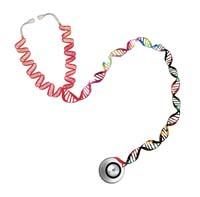Junk DNA has a lot to do with some heart disease

Damaging a piece of DNA that does not encode proteins can cause blockages in the arteries
Researchers at the Lawrence Berkeley National Laboratory have found that the risk of heart disease increases with the mouse, eliminating a piece of DNA that does not encode proteins.
A piece of DNA that was associated with coronary artery disease in a three-year investigation is called 9p21. Analyzing the DNA of thousands of people, they observed that people who had mutations in certain nucleotides suffered more from this disease.
Now, scientists at Lawrence Berkeley wanted to see what happens to mice if they don't have that piece of DNA. They have seen that the expression of two genes that inhibit cell duplication has decreased. Less expression of these genes that regulate the cell cycle can lead to faster than normal duplication of arterial cells and blockage of blood flow to the heart.
However, it cannot be said that part 9p21 has that same function or influence in humans. They have also found differences. For example, in humans fatty plaques form in the arteries when 9p21 is damaged and in the mouse have not observed it.





